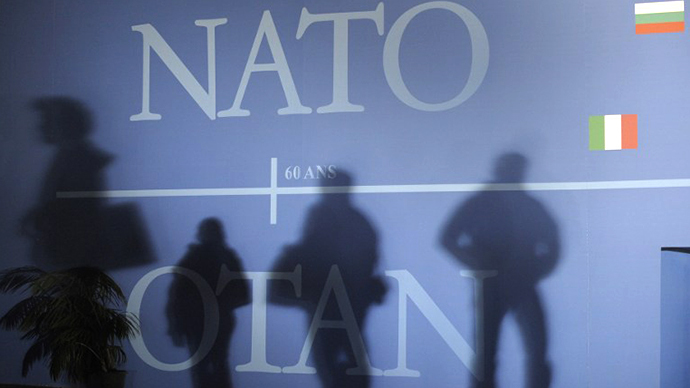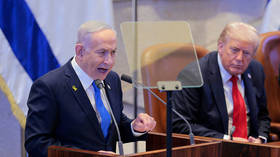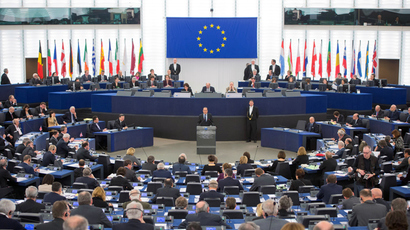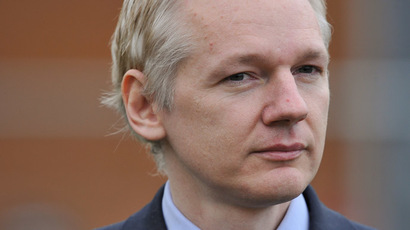American surveillance may kill US-EU free-trade talks

The ‘biggest bilateral trade deal in history’, reached at the G8 Summit, is possibly at risk as rapport between the US and EU quickly degenerates over leaks which reveal the US allegedly spied on EU diplomats.
The trade relationship, valued at hundreds of billions of
dollars, could boost economic growth on both sides of the
Atlantic, and potentially be a key factor in ending the economic
downturn.
EU leaders are demanding answers after leaked NSA documents
revealed the US was tracking diplomatic communications, an
accusation, if proved true, could derail the historic free-trade deal.
Both France and Germany, Europe’s largest and second largest
economy have both responded
strongly to the alleged spying practices.
Germany has officially summoned US Ambassador Philip Murray to
the Berlin Foreign Ministry over the alleged spying.
If the reports are confirmed, Chancellor Merkel said it would be
“unacceptable
Cold War-style behavior.”
French Foreign Minister Laurent Fabius also spoke out against the
alleged spying program, calling for an explanation “as quickly
as possible" and Hollande said it must ''immediately
stop'.
The Transatlantic Trade and Investment Partnership (TTIP) is
slated to begin in mid-July with talks in Washington, and be
concluded by the end of the year. It could raise economic output
in Europe by 0.5 percent.
The deal – which has been in the works for decades – will offer
‘huge economic benefits’ both for the US and EU, Jose
Manuel Barroso, President of the European Commission, said after
the announcement was made at the G8 summit in Northern Ireland.
"We cannot negotiate over a big transatlantic market if
there is the slightest doubt that our partners are carrying out
spying activities on the offices of our negotiators," EU
Commissioner for Justice Viviane Reding said.
"Partners do not spy on each other,” said Reding,
forewarning a possible breakdown in treaty negotiations.
The German magazine Speigel reported it has seen documents from
NSA whistleblower Edward Snowden which allege US agencies bugged
and intercepted phone calls and emails of EU officials in
Washington and the United Nations in New York.
They are also accused of directing an operation from NATO
headquarters in Brussels to infiltrate the telephone and email
networks at the EU's Justus Lipsius building in the Belgian
capital, the venue for EU summits and home of the European
Council.
Treaty threatened
Before treaty procedures move forward, the EU will want more
transparency from the US.
Other EU officials felt vulnerable heading into diplomatic
negotiations with a party that has listened in on classified
information beforehand.
The agreement would be a “once in a generation prize,”
which could add as much as $157 billion to the EU economy, over
$125 billion to the US economy and as much as around $133 billion
to the rest of the word, British Prime Minister David Cameron
said at the summit, adding it could add two million extra jobs,
more choices and lower consumer prices.
Lode Vanoost, former deputy speaker of the Belgian parliament,
believes the main purpose of the US surveillance program was
“economic spying” on the EU, seeing a connection between economic
decline and the need to spy.
“One consequence [of the Snowden leak] for sure is that people
will ask, ‘Does it make sense to negotiate a free-trade agreement
without clear rules about data protection and control?’”
European Parliament President Martin Schulz told reporters in
Brussels.
“At the moment, the EU is negotiating a new free trade agreement
with the United States,” Vanoost said. “Well, [now the US
can gather] what their opponent is already discussing internally
of strategy. That is one of the possibilities.”
He added that there is “too much at stake” for there to be
a total breakdown in US-EU bilateral relations, however,
“behind closed doors there will be some very tough words”
exchanged between EU and American officials.














